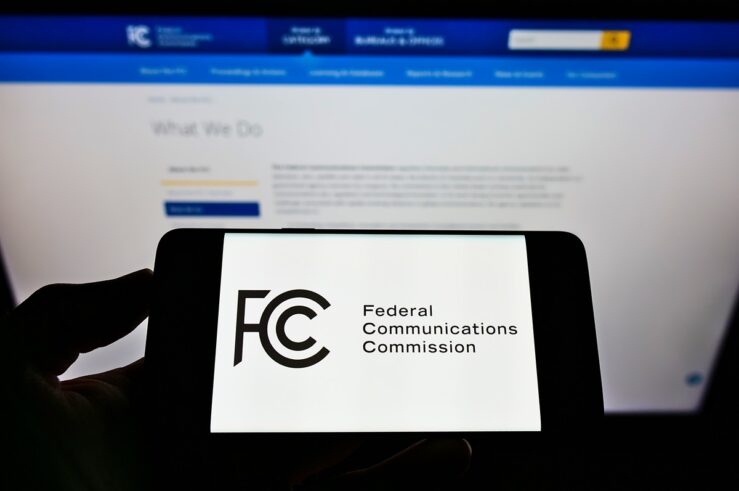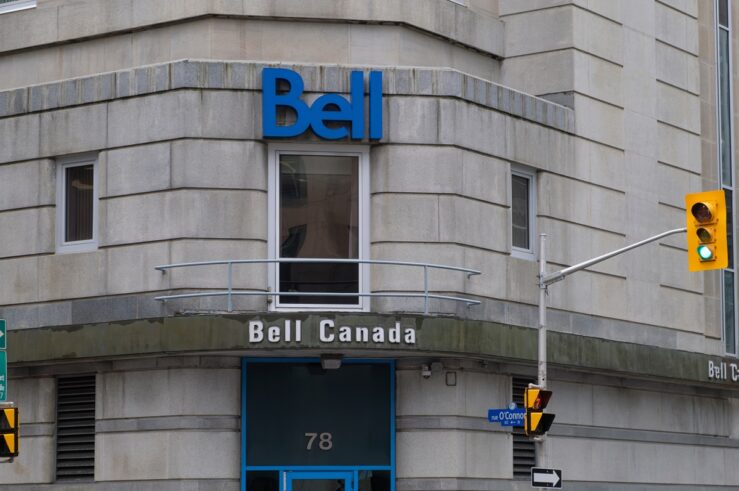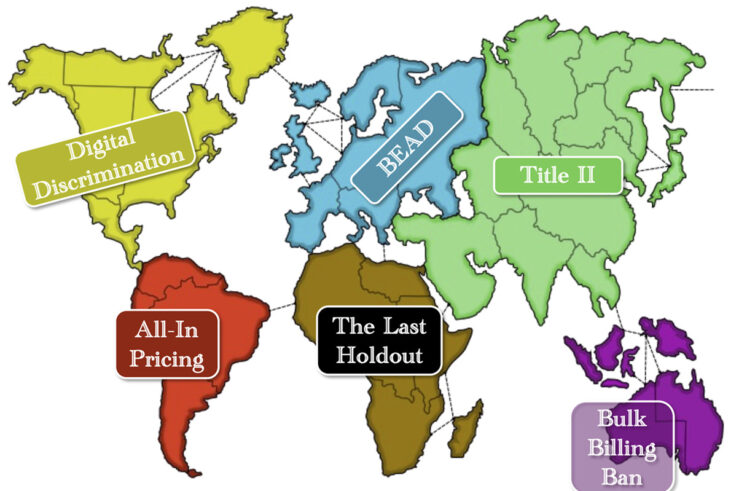The Year in Telecom: A Hootenanny Roundup
They say that when you’re raising kids, the days drag on, but the years fly by. The same could be said for this year in telecom policy. In 2024, the telecommunications industry faced a whirlwind of regulatory changes, legal challenges, and more than its fair share of fire drills without a fire. Let’s use this ... The Year in Telecom: A Hootenanny Roundup
Forced Sharing: Stepping Stones or Stumbling Blocks?
Recent headlines about the U.S. Justice Department’s (DOJ) antitrust case targeting Google Search echo a familiar policy script. In a recent Wall Street Journal op-ed, Thomas Lenard and Scott Wallsten warn that forcing Google to share its technology could undermine innovation—a lesson they say we should have learned from telecommunications policy decades ago. In 1996, ... Forced Sharing: Stepping Stones or Stumbling Blocks?
What Project 2025 Can Tell Us About Brendan Carr’s FCC Priorities
My high-school-aged son came home from school the day after Election Day in distress. His history teacher spent the entire class listing the Parade of Horribles in Project 2025 and its dire consequences for the United States. I asked my son, “Project 2025 is more than 900 pages. Do you think your teacher read it?” ... What Project 2025 Can Tell Us About Brendan Carr’s FCC Priorities
FCC’s New Satellite Rules: Sharing Is Caring
In the aftermath of Hurricane Helene in September, SpaceX provided a masterclass in public relations by handing out thousands of Starlink satellite-broadband kits, waiving monthly fees, and enabling emergency alerts over cellular networks in affected areas. Not only did the effort generate significant goodwill for the company, but it also demonstrated that satellite technology can ... FCC’s New Satellite Rules: Sharing Is Caring
Bell Canada’s Proposed Acquisition of Ziply: Regulators May Be the Least of Their Worries
Bell Canada, Canada’s largest communications company, recently announced plans to acquire Ziply Fiber, a fiber-internet provider in the Pacific Northwest. The C$7 billion deal represents Bell’s strategic play to expand its fiber footprint into the United States and to capitalize on growth opportunities in what it sees as an underserved U.S. fiber market. The proposed ... Bell Canada’s Proposed Acquisition of Ziply: Regulators May Be the Least of Their Worries
The FCC’s Quixotic Quest to Regulate Broadband Data Caps
Internet use has soared since the COVID-19 pandemic. Between 2019 and 2022, average monthly data usage increased from 344 GB to 586 GB per month—a 70% increase. In 2019, only 16% of subscribers were on speed tiers of greater than 200 Mbps. By 2023, 74% had such speeds, and a third of subscribers had speeds ... The FCC’s Quixotic Quest to Regulate Broadband Data Caps
Why Technological Neutrality Is Key to BEAD’s Success
Congress intended the Infrastructure Investment and Jobs Act’s (IIJA) ambitious $42.5 billion Broadband Equity, Access, and Deployment (BEAD) program to bridge America’s digital divide by subsidizing infrastructure buildout to areas that are either unserved or underserved by broadband internet. With projects administered by the 50 states, five insular territories, and the District of Columbia, the ... Why Technological Neutrality Is Key to BEAD’s Success
Life Moves Pretty Fast for the FCC in a Post-Loper World
Ferris Bueller famously said: “Life moves pretty fast. If you don’t stop and look around once in a while, you could miss it.” The same could be said for the Federal Communications Commission’s (FCC) latest effort to regulate broadband providers under Title II of the Communications Act, under what is commonly referred to as “net ... Life Moves Pretty Fast for the FCC in a Post-Loper World
Will the Courts Allow the FCC to Execute One More Title II Flip Flop?
The U.S. Supreme Court’s recent decision in Loper Bright v. Raimondo may have added a new wrinkle to the decades-long fight over whether broadband internet-access services should be classified as “telecommunications services” under Title II of the Communications Act. The Federal Communications Commission (FCC) has flip-flopped multiple times over the years on this hotly debated ... Will the Courts Allow the FCC to Execute One More Title II Flip Flop?
FCC’s Digital-Discrimination Rules: Bridging the Divide or a Bridge Too Far?
The Federal Communications Commission’s (FCC) recently enacted rules to prevent so-called “digital discrimination” in broadband access are facing a significant legal challenge in the 8th U.S. Circuit Court of Appeals. Earlier this week, the U.S. Justice Department and the FCC submitted their brief on the matter. Now that the parties have made their “opening arguments” ... FCC’s Digital-Discrimination Rules: Bridging the Divide or a Bridge Too Far?
Clearing the Telecom Logjam: A Modest Proposal
In this “Age of the Administrative State,” federal agencies have incredible latitude to impose policies without much direction or input from Congress. President Barack Obama fully pulled off the mask in 2014, when he announced “[w]e are not just going to be waiting for legislation,” declaring “I’ve got a pen, and I’ve got a phone.” ... Clearing the Telecom Logjam: A Modest Proposal
It’s Risk, Jerry, The Game of Broadband Conquest
The big news in telecommunications policy last week wasn’t really news at all—the Federal Communications Commission (FCC) released its proposed rules to classify broadband internet under Title II of the Communications Act. Supporters frame the proposed rules as “net neutrality,” but those provisions—a ban on blocking, throttling, or engaging in paid or affiliated-prioritization arrangements—actually comprise ... It’s Risk, Jerry, The Game of Broadband Conquest
















